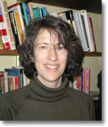Rates of reported crime in Vancouver, county dip
adrianaThe rate of reported violent and property crimes in Clark County, Wash., decreased slightly from 2015 to 2016, differing from a slight increase in violent crime nationwide, according to new data from the FBI.

Clayton Mosher, a professor in Washington State University Vancouver’s sociology department who focuses on criminology, said the seeming increase in violent crime nationwide is somewhat misleading.
“It’s certainly true in places like Chicago and Detroit, and a couple other places, you’re seeing significant increases in violent crime,” he said. “It’s certainly not a national phenomenon.”
However, violent crime nationwide remains well below rates from the 1980s and early 1990s.
Violent crime in 2016 was 18 percent lower than it was in 2007, and the murder rate is down 6 percent from 2007, according to the Associated Press.
Clark County’s violent crime rate for 2016 is actually about 2 percent higher than in 2006, but the rate of reports per 100,000 people has generally been between 200 and 250, with an overall trend downward.


